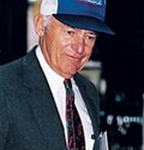Nutrition is important!
As we age we must understand how our needs change when it comes to nutrition, and what causes those changes. Our nutritional requirements differ from those of younger people.
Several factors contribute to this difference:
 Changes in Metabolism: As people age, their metabolism tends to slow down. This can result in a decreased calorie requirement. However, the need for certain nutrients, such as protein, calcium, and vitamins D and B12, may increase.
Changes in Metabolism: As people age, their metabolism tends to slow down. This can result in a decreased calorie requirement. However, the need for certain nutrients, such as protein, calcium, and vitamins D and B12, may increase.
Reduced Appetite: Older adults may experience a decrease in appetite due to various factors such as changes in taste and smell, medication side effects, or dental issues. This reduced appetite can make it challenging for them to consume adequate nutrients.
Changes in Digestive System: Aging can lead to changes in the digestive system, including decreased stomach acid production and changes in nutrient absorption. This can affect the body’s ability to absorb nutrients effectively, requiring adjustments in dietary intake or supplementation.
Muscle Mass Loss: Sarcopenia, the age-related loss of muscle mass and strength, is common in older adults. Adequate protein intake becomes crucial to help maintain muscle mass and function, as well as to support overall health and recovery from illness or injury.
Bone Health: Older adults are at a higher risk of osteoporosis and bone fractures. Therefore, they may require increased calcium and vitamin D intake to maintain bone health and prevent bone density loss.
Chronic Health Conditions: Older adults are more likely to have chronic health conditions such as hypertension, diabetes, and heart disease. Dietary modifications may be necessary to manage these conditions and reduce the risk of complications.
Hydration: Older adults may have a decreased sensation of thirst, which can increase the risk of dehydration. Adequate fluid intake is essential to maintain hydration and support overall health, especially in older individuals.
Feed Your Nutritional Needs!
Considering these factors, it’s important for older adults to focus on nutrient-dense foods that provide essential vitamins, minerals, and protein while monitoring their calorie intake. Consulting with a healthcare professional or registered dietitian can help develop a personalized nutrition plan tailored to the individual’s specific nutritional needs and health goals.
calorie intake. Consulting with a healthcare professional or registered dietitian can help develop a personalized nutrition plan tailored to the individual’s specific nutritional needs and health goals.


_01.jpg&ehk=B1PI2a%2bisZYPAdBITVZjzYNtzpmaAL4810EG8Na4JdU%3d&risl=&pid=ImgRaw&r=0)










